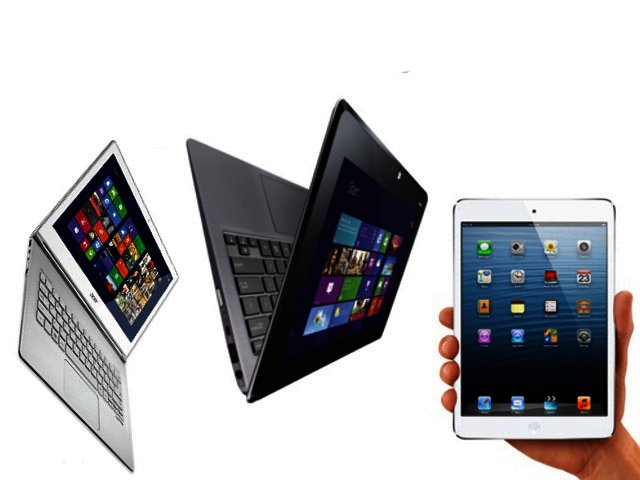Gadget restrictions on flight begin a slow descent
By Ryan Noik 4 November 2013 | Categories: news
If you’re ever gone on an international flight, no doubt you’ve heard the repeated announcements to turn off all your electronic devices during take-off and landing (inexplicably, even Kindles with their Wi-Fi off and iPods have been included in this blanket ban). You may too have similarly questioned the veracity of this request. Now, finally, it seems as though this somewhat arbitrary rule is on its way out.
Stateside, the Federal Aviation Administration (FAA) has announced that airlines are now being provided with implementation guidelines that would allow them to accommodate “passenger use of Portable Electronic Devices (PEDs) during all phases of flight.”
While the rollout of these guidelines are expected to vary from one airline to another, the agency elaborated that passengers will eventually be able to read ebooks, play games, and watch videos on their devices during all phases of flight, with very limited exceptions.
Common sense and explanations
Naturally, there will still be some rules and regulations, although these certainly aren’t unreasonable or unfathomable. Under the new implementation plan, travelers will either have to hold their electronic devices or secure them in the seat back pocket during takeoff and landing (something travelers would likely do anyway, if just to prevent their device from dropping or sliding under the seat in front of them).
Also, and thankfully, cellphones will either have to be in airplane mode or have their cellular service disabled, and passengers will still not be able to use that device for voice communication. However, short-range Bluetooth accessories, such as wireless keyboards, will be permitted.
Along with the now, more enlightened approach to the use of technology on board, the agency also reiterated its previous explanations as to why electronic devices were banned during takeoff and landing in the first place.
“Current FAA regulations require an aircraft operator to determine that radio frequency interference from PEDs is not a flight safety risk before the operator authorises them for use during certain phases of flight. Even PEDs that do not intentionally transmit signals can emit unintentional radio energy,” it explained.
The FAA elaborated that “this energy may affect aircraft safety because the signals can occur at the same frequencies used by the plane's highly sensitive communications, navigation, flight control and electronic equipment. An airline must show it can prevent potential interference that could pose a safety hazard. The PED ARC report helps the FAA to guide airlines through determining that they can safely allow widespread use of PEDs.”
To the point
Transportation Secretary Anthony Foxx commented: "We believe today's decision honors both our commitment to safety and consumer's increasing desire to use their electronic devices during all phases of their flights. These guidelines reflect input from passengers, pilots, manufacturers, and flight attendants, and I look forward to seeing airlines implement these much anticipated guidelines in the near future."
For seasoned travelers, it’s welcome news, particularly since the landing procedure can take around half an hour in some cases – time that could be well spent on a Kindle or iPad.
To date, apparently Delta has already starting implementing the new guidelines, while airlines in other parts of the world are apparently studying the new guidelines carefully, with an eye on possibly changing their policies as well.
Most Read Articles

Have Your Say
What new tech or developments are you most anticipating this year?



